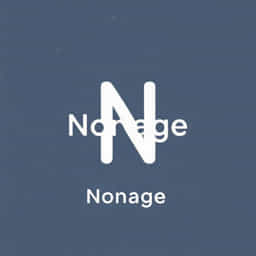The word ‘nonage’ might not be part of everyday English vocabulary, but it carries significant weight in literature, law, and formal writing. Understanding how to use ‘nonage’ in a sentence helps broaden your command of advanced English and provides insight into contexts involving age, maturity, and development. This topic explores the meaning of ‘nonage,’ how it is used, and provides numerous examples in sentences to ensure clear understanding for general readers, students, and professionals alike.
Definition of Nonage
‘Nonage’ is a noun that refers to the period of legal minority or immaturity. In simple terms, it describes the state or condition of being too young to have full legal rights or responsibilities. The word comes from Latin origins, combining ‘non’ (not) and ‘aetas’ (age), literally meaning ‘not of age.’
Primary Meanings of Nonage
- Legal minority: A stage in life where a person has not yet reached the age of legal adulthood.
- Immaturity: A figurative meaning that refers to mental, emotional, or intellectual immaturity, regardless of actual age.
Nonage in Different Contexts
1. Legal Usage
In legal contexts, ‘nonage’ is often used to describe individuals who are under the age of majority, meaning they cannot vote, enter contracts, or make legally binding decisions. The term appears frequently in legal literature, historical documents, and even in philosophical writings.
2. Literary and Figurative Usage
Writers and poets have used ‘nonage’ to describe not just physical age, but also stages of ignorance, innocence, or mental growth. For example, a character in a novel might reflect on their ‘nonage’ as a time of naivety and idealism before facing the realities of adult life.
Examples of Nonage in a Sentence
Here are several examples showing how the word nonage can be used in different types of sentences:
- During his nonage, he was shielded from the harsh truths of the world.
- She inherited the estate but could not access it until the end of her nonage.
- Philosophers often discuss the nonage of mankind in the context of enlightenment.
- The law does not allow a person in their nonage to sign a contract without a guardian.
- His poetry from the period of his nonage was filled with dreams and innocence.
Using Nonage in Formal Writing
In academic or legal writing, ‘nonage’ is often employed to describe limitations placed on individuals due to their age. Here is how it might be used in more formal sentence structures:
- The petitioner, being in a state of nonage, lacked the legal capacity to execute the agreement independently.
- The court ruled that the defendant, being in his nonage at the time, was not liable for the contractual obligations.
- The essay examined the role of nonage in restricting civic participation in historical societies.
Comparing Nonage with Similar Terms
While ‘nonage’ has a unique formal tone, there are other related terms that carry similar meanings. Understanding how they compare can help in choosing the right word for your context:
- Minority: A more common term meaning someone under the legal age of adulthood.
- Infancy: Often used in legal language to mean the early stage of life or childhood.
- Immaturity: Refers more broadly to a lack of development, not limited to age.
Example comparing usage:
- Due to his nonage, he required a guardian. (Formal and legal tone)
- She is still in her minority and cannot vote. (Common legal terminology)
- His immaturity was evident in his decisions. (General description, not age-specific)
Common Mistakes with Nonage
Because ‘nonage’ is not widely used in everyday conversation, it is sometimes misapplied or misunderstood. Here are a few mistakes to avoid:
- Using it as a verb or adjective: ‘Nonage’ is strictly a noun. You cannot say ‘nonaging’ or ‘nonaged’ in standard English.
- Using it as a synonym for ‘young person’: ‘Nonage’ refers to a state of being, not the individual. The correct sentence is He is in his nonage, not He is a nonage.
Why Learn and Use the Word Nonage?
Expanding your vocabulary with words like ‘nonage’ can elevate your writing, particularly in formal, academic, or legal settings. It allows for more precise expression and demonstrates a strong grasp of English, especially in analytical or historical discussions. Additionally, for non-native English speakers, understanding such words can help in reading literature or interpreting legal documents with greater clarity.
How to Remember the Word Nonage
Here are a few tips to help remember and correctly use ‘nonage’:
- Associate it with not of age. The prefix non- and the root age help create this connection.
- Think of it as a formal version of youth or minority.
- Try using it in a sentence each day: During my nonage, I used to believe in fairy tales.
The term ‘nonage’ may seem obscure, but it holds a distinct place in English language, particularly in legal and literary fields. Whether you’re a student preparing for exams, a writer enriching your vocabulary, or simply someone interested in learning precise English, understanding how to use ‘nonage in a sentence’ can be incredibly valuable. It offers a sophisticated way to describe youth, legal incapacity, or intellectual immaturity with elegance and clarity.
